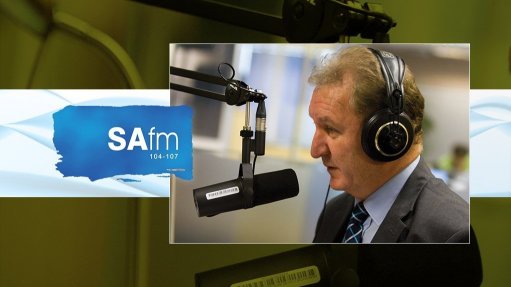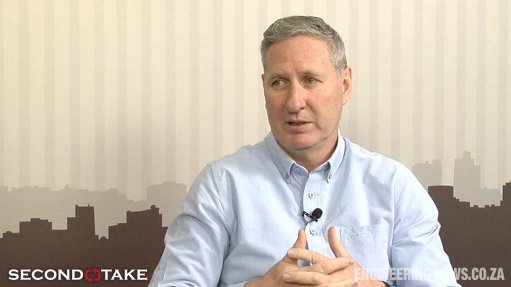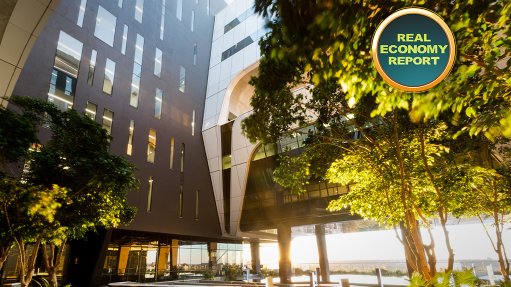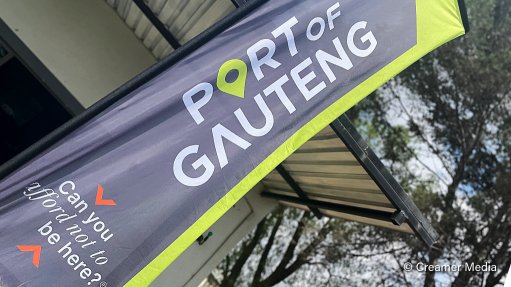Key energy and infrastructure trends shaping Africa’s development revival
This article has been supplied and will be available for a limited time only on this website.
Africa stands at the brink of an energy transformation, with a unique opportunity to revitalise its infrastructure and unlock sustainable growth.
According to Taona Kokera, Director at Forvis Mazars South Africa and lead of its Infrastructure Finance Advisory service, the convergence of clean energy, innovation and digital transformation is generating powerful opportunities for sustainable and impactful infrastructure development.
“Africa is at a decisive point: energy and infrastructure development can no longer be viewed as gaps to be filled, but rather as strategic levers for long-term economic resilience,” Kokera says. “Projects structured with high-quality financial modelling, sound risk allocation, and strong local participation are the ones best positioned to succeed.”
Here are key trends currently shaping the continent’s energy and infrastructure outlook:
Infrastructure financing is evolving
With limited fiscal space in many African economies, the mobilisation of private capital has become increasingly important. Blended finance models, ESG-linked instruments, and impact-focused investment vehicles are growing in relevance.
“Enhanced due diligence, financial model audits and structured risk-sharing are now prerequisites to attract concessional or commercial funding. Institutional investors are demanding better governance and transparency to deploy capital at scale,” says Kokera.
Decentralised energy is gaining momentum
Across markets like South Africa, Kenya, Ghana and Nigeria, reforms are enabling the growth of decentralised energy solutions, including rooftop solar, mini-grids and captive power systems.
“These models are rapidly improving energy access in underserved areas while increasing resilience for businesses and communities. Decentralisation supports faster deployment and allows for greater private sector participation, especially in areas where grid expansion is limited or unreliable,” notes Kokera.
The rise of financial model assurance
As energy and infrastructure projects become more sophisticated - often involving complex financing structures, sovereign support and long-term revenue flows - the need for robust, independently audited financial models is growing.
“Increasingly, financial models are central to risk allocation, especially in PPPs, climate infrastructure, and cross-border corridor projects. Assured models reduce transaction uncertainty, highlight flawed assumptions early, and help prevent cost overruns—key concerns for lenders and governments alike,” says Kokera.
Without credible and transparent modelling, Kokera warns, capital will not flow at the scale or speed required to meet Africa’s infrastructure needs.
Local skills and content will drive long-term impact
A growing number of governments and developers are embedding localisation into project design - prioritising job creation, skills transfer and local procurement to maximise the developmental impact of infrastructure investments.
Forvis Mazars has already taken steps in this direction, launching a Centre of Excellence in Johannesburg to nurture African talent.
“Developing skilled local professionals isn’t optional - it’s essential. Without local capacity to design, deliver and maintain infrastructure, the continent remains overly reliant on external expertise and risks missing critical opportunities for inclusive growth.”
As Africa confronts persistent challenges around capital access, technical skills gaps and delivery risks, these trends underscore the continent’s shifting development landscape. Projects that integrate financial discipline, community upliftment, and resilience into their design will lead the way in driving long-term economic transformation.
Comments
Announcements
What's On
Subscribe to improve your user experience...
Option 1 (equivalent of R125 a month):
Receive a weekly copy of Creamer Media's Engineering News & Mining Weekly magazine
(print copy for those in South Africa and e-magazine for those outside of South Africa)
Receive daily email newsletters
Access to full search results
Access archive of magazine back copies
Access to Projects in Progress
Access to ONE Research Report of your choice in PDF format
Option 2 (equivalent of R375 a month):
All benefits from Option 1
PLUS
Access to Creamer Media's Research Channel Africa for ALL Research Reports, in PDF format, on various industrial and mining sectors
including Electricity; Water; Energy Transition; Hydrogen; Roads, Rail and Ports; Coal; Gold; Platinum; Battery Metals; etc.
Already a subscriber?
Forgotten your password?
Receive weekly copy of Creamer Media's Engineering News & Mining Weekly magazine (print copy for those in South Africa and e-magazine for those outside of South Africa)
➕
Recieve daily email newsletters
➕
Access to full search results
➕
Access archive of magazine back copies
➕
Access to Projects in Progress
➕
Access to ONE Research Report of your choice in PDF format
RESEARCH CHANNEL AFRICA
R4500 (equivalent of R375 a month)
SUBSCRIBEAll benefits from Option 1
➕
Access to Creamer Media's Research Channel Africa for ALL Research Reports on various industrial and mining sectors, in PDF format, including on:
Electricity
➕
Water
➕
Energy Transition
➕
Hydrogen
➕
Roads, Rail and Ports
➕
Coal
➕
Gold
➕
Platinum
➕
Battery Metals
➕
etc.
Receive all benefits from Option 1 or Option 2 delivered to numerous people at your company
➕
Multiple User names and Passwords for simultaneous log-ins
➕
Intranet integration access to all in your organisation


















